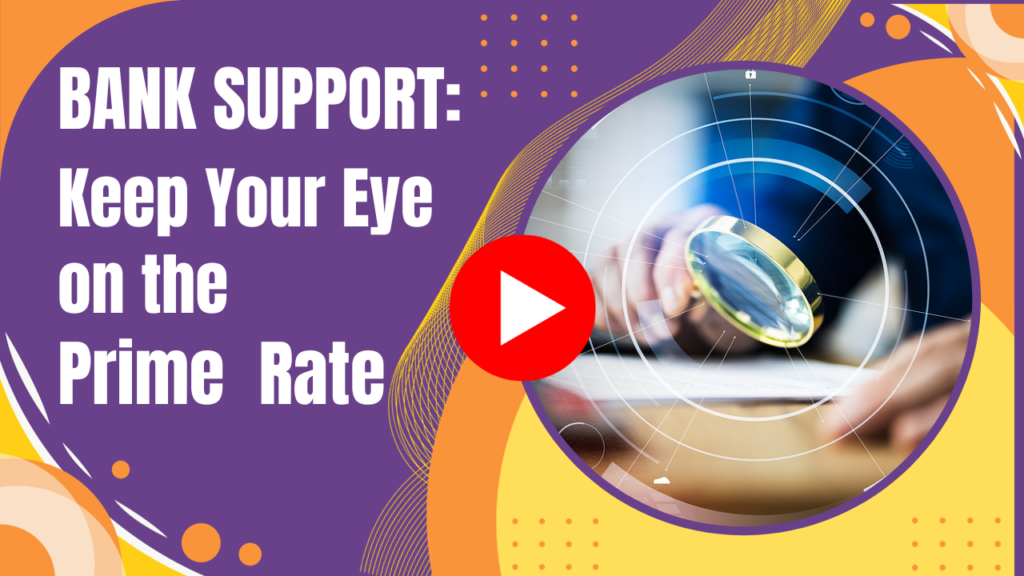Strengthen your financial fitness by delving into the intricacies of the banking industry. Explore the influence of the prime rate on your financial life, discover the advantages of in-store banking, and uncover the key players involved in a trust. If you have any pressing banking questions, our expert banker, Alex, is here to assist you. Reach out to Alex at alexexpertbanker@gmail.com for in-depth insights. Embark with us on a journey towards achieving greater banking success.
Question: Why is the prime rate so important to lending?
Asked by: Aubrey from Santa Monica, California.
Answer: The prime rate serves as the baseline for determining interest rates on various financial products such as credit cards, loans, lines of credit, and mortgages. It is influenced by the federal funds rate, which is the overnight rate banks use to lend money to one another. The Federal Open Market Committee, a part of the Federal Reserve System, meets eight times a year to establish monetary policy, including the federal funds rate. The federal funds rate directly impacts the prime rate, which lenders use to establish interest rates for lending products. Changes in the prime rate can have a substantial effect. When the prime rate rises, lenders tend to increase their interest rates, and when it falls, they usually reduce their rates. The prime rate also significantly affects existing lending products with variable interest rates, as they will adjust in response to fluctuations in the prime rate. In the last fifty years, the highest prime rate in the United States was 21.5%, on December 19, 1980, while the lowest was 3.25% on December 16, 2008, and March 16, 2020.
Question: What is in-store banking?
Asked by: Paul from Woodbury, Minnesota.
Answer: An in-store branch is a convenient and comprehensive financial center that provides a wide range of services. Located within a retail or grocery store, it offers traditional banking services such as deposits, withdrawals, loan payments, opening new accounts, and applying for loans and mortgages. In addition to an ATM, an in-store branch typically features one to three teller stations, a sit-down desk, and a vault. Despite their smaller size and fewer employees, in-store branches are well equipped to meet customer needs. They often have extended hours, aligning with the retail or grocery store’s schedule, including evenings and weekends. In-store branches are strategically positioned in high-traffic areas, making them easily visible and accessible. Notable banks such as U.S. Bank, Chase, and Wells Fargo are among those that have in-store branches.
Question: Who is involved in a trust?
Asked by: Kate from Concord New Hampshire.
Answer: Trusts are legal arrangements that are commonly utilized for estate planning, asset protection, and charitable giving. They involve three key players, the trustor, the trustee, and the beneficiary. The trustor is the one who creates the trust and transfers their assets into it. They have the power to set guidelines for managing and distributing the assets. The trustee’s role is to actively manage and protect the assets by making investment decisions, paying bills, and following the trust’s terms for distributing income or assets to the beneficiaries. They are bound to act in the best interests of the beneficiaries, as stipulated by the trustor. It is common for the trustor of a revocable living trust to also serve as the trustee. If the original trustee becomes incapacitated or passes away, a successor trustee takes over managing the trust. Finally, the beneficiaries are the individuals or groups who benefit from the assets held in the trust. They may receive income, access to the trust’s assets, or other benefits specified in the trust agreement.
 Written by: Alex Sanchez
Written by: Alex Sanchez
Important: For your specific questions about banking, contact your banking expert, Alex, at: alexexpertbanker@gmail.com
About our Author: With nearly 20 years of experience in the banking industry, Alex is currently a branch manager with First Interstate Bank. Throughout his career, he has contributed his expertise to renowned financial institutions like Bank of America, US Bank, and Chase. He also has a bachelor’s degree in Business Economics from the University of California, Riverside.
Discover More…
- Unlock the secret to a happier, healthier lifestyle by delving into additional captivating articles on our website at: Smart Strategies for Successful Living.
- Enjoy our uplifting and inspiring videos on our YouTube channel at: CLICK HERE.
- For more resources on Bank Support: CLICK HERE.
Check Out Our Captivating Videos
![]() About Smart Strategies for Successful Living: CLICK HERE.
About Smart Strategies for Successful Living: CLICK HERE.
![]() Your Journey of Self-Discovery: CLICK HERE.
Your Journey of Self-Discovery: CLICK HERE.
![]() Our YouTube Channel: CLICK HERE.
Our YouTube Channel: CLICK HERE.
Bank Support
![]() Next Steps to a Credit Card Default: CLICK HERE.
Next Steps to a Credit Card Default: CLICK HERE.
![]() Selecting A Bank That Works for You: CLICK HERE.
Selecting A Bank That Works for You: CLICK HERE.
![]() Safeguard Against Smishing: CLICK HERE.
Safeguard Against Smishing: CLICK HERE.
![]() Cash Advances on Credit Cards Are Costly: CLICK HERE.
Cash Advances on Credit Cards Are Costly: CLICK HERE.
![]() Keep Your Eye on the Prime Rate: CLICK HERE.
Keep Your Eye on the Prime Rate: CLICK HERE.









